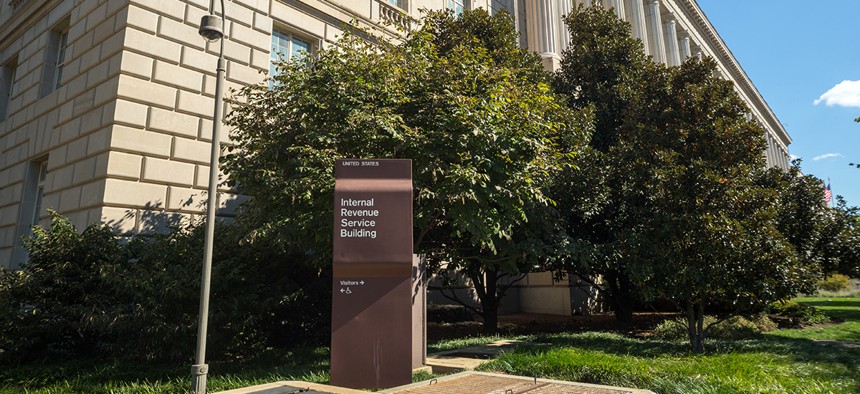
blvdone/Shutterstock.com
Agencies Look to Yelp for Customer Feedback
The feds are partnering with the popular review site to encourage conversations on public services like the TSA and IRS—and preparing to get an earful.
Did you wait in an egregiously long line at your local passport office? Did a TSA agent get a little too frisky with his or her pat down before your last flight? The federal government now wants to read your complaints—on Yelp.
The popular online review site and the General Services Administration this weekannounced an agreement giving government agencies access to their Yelp pages, a move that could allow federal workers to respond directly to feedback—potentially in realtime—from frustrated users of public services.
The news isn’t quite as revolutionary as it might sound. People have been reviewing federal departments on Yelp for years; the TSA, for example, “earned” its first one-star review all the way back in 2006, less than a year after Yelp relaunched as an open website, when a Seattle-based user with the handle of MissMaryAnn D. complained about harassment, said she did not feel secure in the airport, and, speaking the universal language of the online commenter, called the agency “A PAIN IN MY ASS.” Over the years, a handful of similar critiques have accrued on the TSA page, along with one or two comments defending the workers charged with preventing another 9/11 and accusing the complainers of pettiness.
Yet the agreement handing over the pages to the government has the potential to the make the experience of venting online more interactive, and ideally, more productive. For one, it can serve as another outlet for agencies to provide basic information about their hours and services. And if enough people begin rating and using the pages, agencies can make improvements large and small based on the feedback they receive. Phaedra Chrousos, who holds the title of “chief customer officer” at the General Services Administration, said the pact with Yelp is part of a broader push to improve the customer experience across the government. The GSA has already launched an offline program called Feedback USA in partnership with agencies like the TSA and the Social Security Administration.
“Yelp was another kind of no-brainer,” she told me by phone on Wednesday. “We thought it would be great to go where the customers actually are.” Chrousos said it would be up to individual offices and departments to determine whether to make an active Yelp page and how to use it, although the GSA will be putting together a “best practices” guide over the next several months. The State Department is expected to be the first online with official pages for some of its passport offices.
The TSA hasn't signed up yet, but Chrousos expected that it would. The TSA is “very eager to improve its customer experience,” Chrousos said, speaking diplomatically about an agency that has—fairly or unfairly—become a punching bag for public complaints about the government. Within hours of Yelp highlighting the TSA as part of its announcement, Republican presidential hopeful Carly Fiorina took the opportunity to bash the agency in her own one-star review on the site. “The TSA spent $160 million of your taxpayer dollars on body scanners that have a 96% failure rate,” she wrote. “Unfortunately, these stories of inept federal bureaucracies have become far too common.”

Yelp.com
Perhaps because Fiorina’s review was so obviously a political message, it was later demoted on the Yelp page to “not recommended,” and a note said it did not factor into the TSA’s rating, which as of Wednesday stood at two stars out of five. While agencies like the TSA and the IRS might be expected to fare poorly in Yelp ratings, government services like national parks and other tourist attractions have garnered sterling ratings on the site.
Since Yelp has been popular for several years, it’s worthing asking what took the government so long to partner with it. Predictably, bureaucracy and legalese got in the way. Chrousos said negotiations have been going on for a full year to get Yelp’s terms of service “compliant with the government.” While agencies won’t be able to edit or remove poor reviews, the feds did insist that most advertising be removed from official government pages. “We started it a little late,” she acknowledged.
And what about all the vitriol? Yelp is perhaps most famous for its angriest comments, and not even the slowest restaurant service riles up Americans like shoddy government work. Chrousos said a big part of the initiative was to encourage feedback “out in the open,” which is better for accountability. And agencies know what they’re getting into—or at least they should. “All customer feedback is like that,” she said of Yelp’s reputation for occasional nastiness. “I hope agencies will take the constructive feedback and not let the bashing disturb them, if there’s bashing.”
(Top image via blvdone/Shutterstock.com)
NEXT STORY: Social Skills May Be the Key to Career Success






